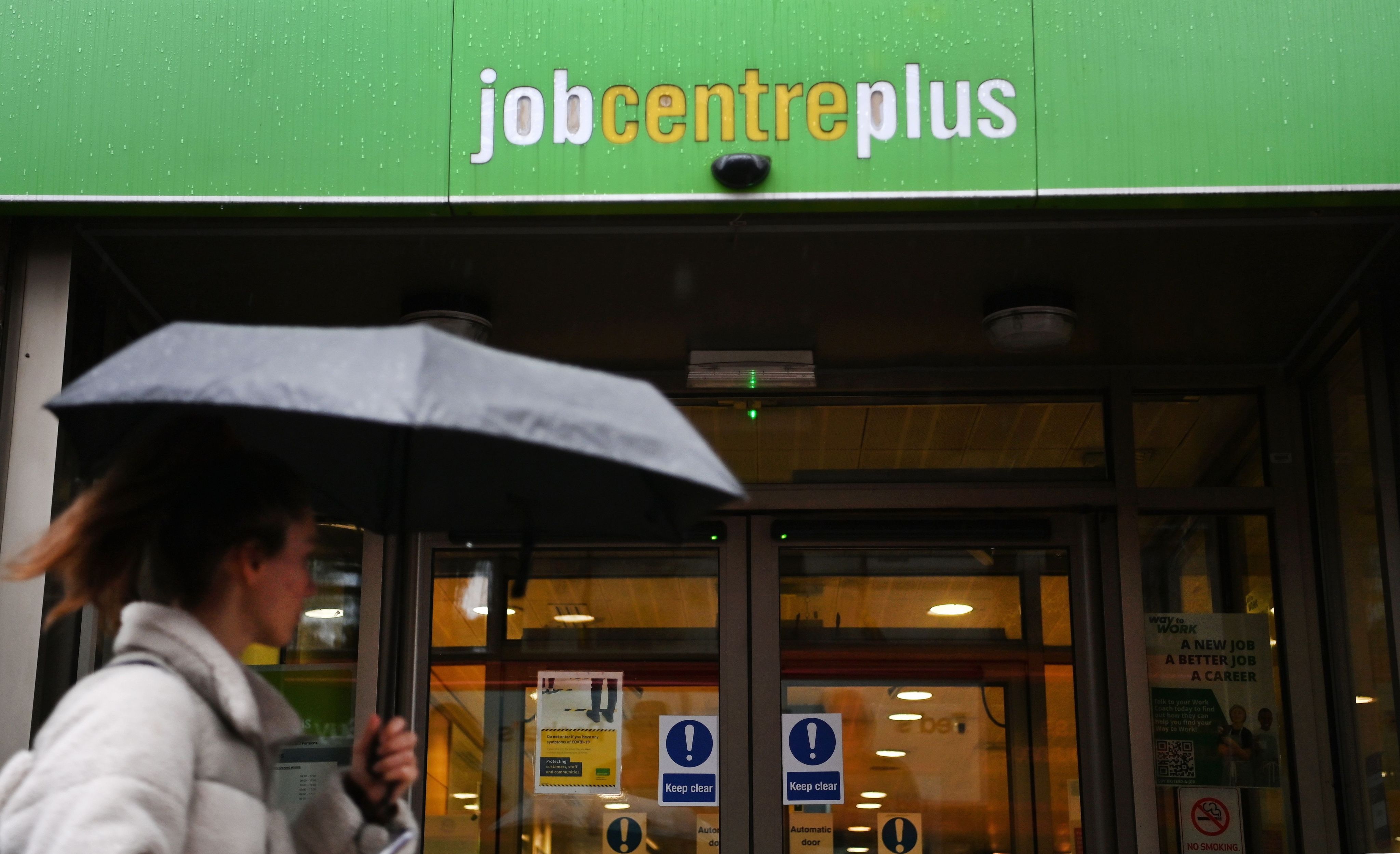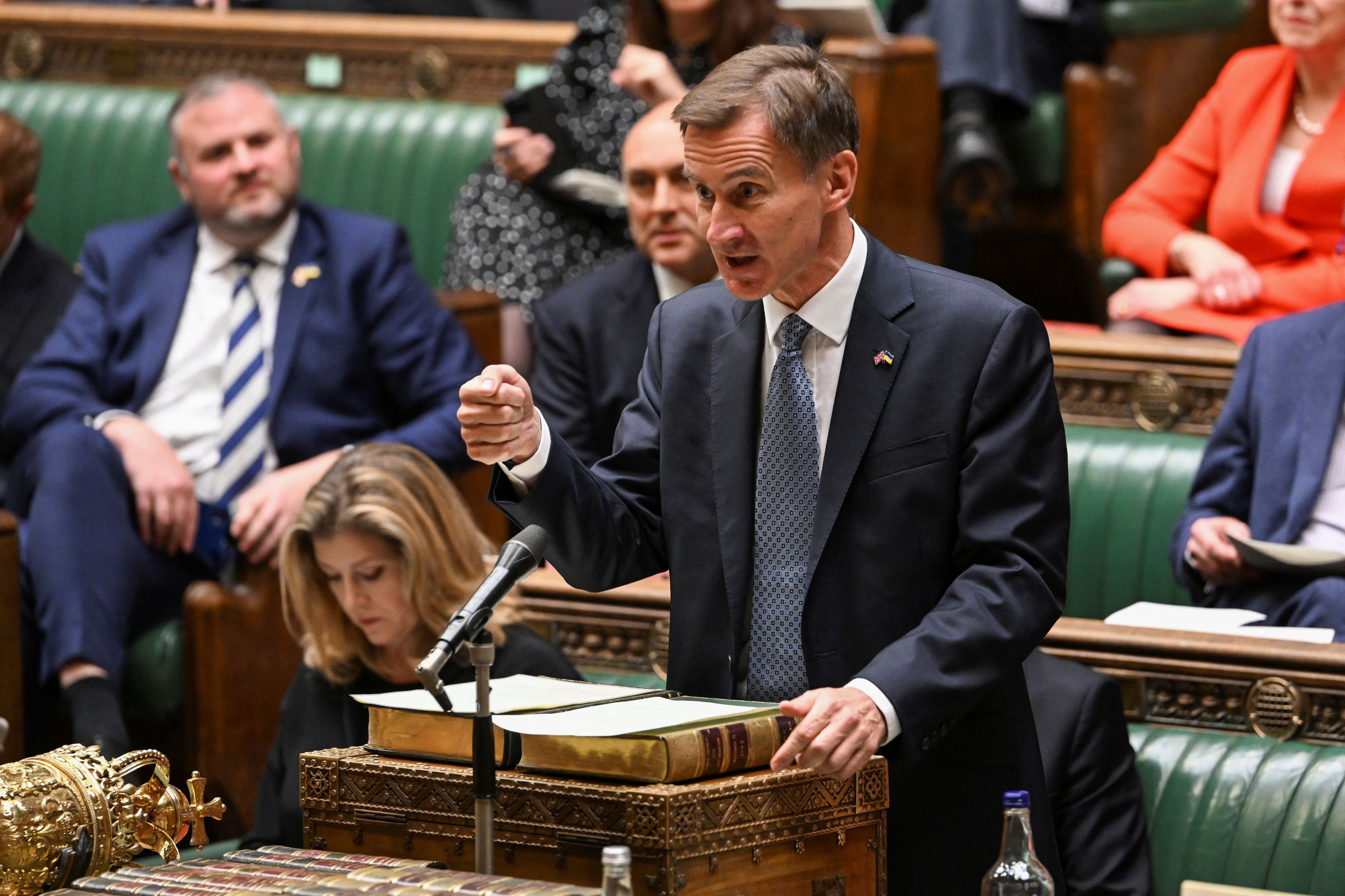Are UK equities worth investing in?
The UK economy is having a tough time but investors may yet find opportunities in UK PLC


The UK faces a tough economic outlook, but now could be a good time to invest in the UK.
According to investment managers, high interest rates, increased bond yields and an uncertain market backdrop present good income-generating conditions for financials.
Meanwhile there are opportunities in the more cash-generative UK banking sector.
And while there are poor views of the UK’s economic prospects, there is a distinction to be made between the economy and the stock market.
Additionally, there are certain factors that will affect small, large or mid-caps differently.
These themes will be explored in this report, worth 30 minutes of CPD.
Recession is 'testing time' for small to mid-caps as IFAs favour their larger peers
With the UK entering into a recession, advisers say they are more likely to increase their allocation to large caps, according to the latest FTAdviser poll.
Half of those who responded (50 per cent) voted to increase allocation to large caps, 30 per cent voted mid-caps, and 20 per cent voted small caps.
Tim Morris, IFA at Russell & Co, said it was not surprising to see that large caps were more favoured.
“As we enter a recession, the economic environment for small and mid-caps will become more squeezed,” he added.
The main reasons he gave for this were that small and mid-caps tended to have less pricing power and therefore less scope to increase prices in the face of rising costs. This will squeeze profit margins. At the same time, consumers will rein in their spending and buy less.
If rates here continue to increase or stay higher for longer, we could see the pound strengthen against the dollar. That can erode the value of overseas earnings
Secondly, small and mid-caps would find it difficult to borrow money to expand and help them grow as the economy recovered.
“And yet by the time a recession is announced, we are often through the worst of it. So they could actually start to grow shortly after we enter recession – the caveat being how deep and prolonged the recession is,” Morris added.
Finally, more small businesses fail.
Morris said: “We have already seen a steep rise in company liquidations in recent months. Many will be severely tested. However, those that survive could well go on to thrive. That's when we will see the real winners.
“Buffet painted a vivid picture with his assessment of this: 'When the tide goes out, you find out who's been swimming naked’.”
Disadvantage of large caps
One disadvantage for UK large caps though, noted Morris, was the impact of rate increases slowing sooner in the US, mainly because the US looks likely to have inflation under control sooner.
“In addition, if rates here continue to increase or stay higher for longer, we could see the pound strengthen against the dollar. That can erode the value of overseas earnings, much of which are in dollars for large multinational companies,” he added.
Following the Autumn Statement, markets were largely unmoved, with both the FTSE 100 and the pound barely reacting, but investors have warned that the government may have overcorrected from the debacle of the "mini" Budget, which could lead to growth being stifled.
ima.jacksonobot@ft.com

Where now for UK equities?
The outlook for UK equities may be affected by factors such as inflation, the energy crisis and recession, but these challenges are not necessarily unique to the UK.
Equity funds saw record outflows of £5bn in September, with all equity regions affected, according to the Investment Association.
Global funds saw outflows of £2bn, while UK funds saw outflows of £1.3bn.
But there is still a case for optimism, according to George Ensor, portfolio manager of the ES R&M UK Listed Smaller Companies Fund.
Citing the level of outflows from UK equities, Ensor says: “There is a strong consensus around the poor prospects for the UK economy and UK equities, which is typically, alongside depressed valuations, a good starting point for outperformance.”
Despite a tough economic outlook, Tim Lucas, portfolio manager of the BNY Mellon UK Income fund, likewise says now could be a good time to invest in the UK.
“We think high interest rates, increased bond yields and an uncertain market backdrop present good income-generating conditions for financials and we continue to see opportunities, especially in the more cash-generative UK banking sector,” he adds.
Difference between UK stocks and economy
While there are poor views of the UK’s economic prospects, there is a distinction to be made between the economy and the stock market.
“There is a perception that the prospects for UK equity investors are tied tightly to the UK economy,” says Stuart Widdowson, Odyssean Investment Trust portfolio manager.
“While many UK quoted companies do have exposure to the UK economy, there are others for which the state of the UK economy has very little bearing on their prospects.
“This may be because they operate in part of the market that is not sensitive to the ups and downs of the economy, or they are small and growing fast in a disruptive niche. Alternatively, they may have the bulk of their operations and/or sales from overseas markets.”
The UK stock market is not one and the same as the UK economy.
Around 82 per cent of FTSE 100 revenues were from overseas markets as at the end of September, while this figure dropped to nearly 57 per cent for the FTSE 250, according to FTSE Russell.
“From a UK equity investors’ perspective, the main positive we see is that the UK stock market is not one and the same as the UK economy,” says Thomas McGarrity, head of equities at RBC Wealth Management.
“The UK stock market is home to many global leading businesses, many of which trade at a notable discount to their global peers in other equity markets. We view this unwarranted ‘UK market discount’ on these global companies as an opportunity for long-term investors in these stocks.”
Why are UK companies relatively cheap?
“Six difficult years of Brexit negotiations, nearly as many prime ministers, a global pandemic and now rising inflation and interest rates have all been substantial challenges for UK investors,” says Hugo Ure, co-manager of Troy Income & Growth Trust.
“In our view, this has left UK companies looking relatively cheap versus other global equity markets. The UK’s home market is increasingly offering investors the opportunity to invest in world-class businesses at attractive valuations.”
But as Widdowson notes, many UK quoted companies are exposed to the domestic economy. He says UK equity investors face the most risk investing in UK consumer-facing companies such as retailers, restaurants and property companies, albeit valuations have fallen a lot already, especially where those companies have high gearing and banking facilities needing renewal in the short to medium term.
Simon Moon, Unicorn UK income fund manager, also expresses caution regarding consumer-facing names: “The UK is facing some significant challenges, something that is clearly reflected in the poor share price performance of UK small and mid-cap companies over the past 12 months.
“Despite fairly robust operating performance to date, the vast majority are trading at significant discounts to their longer-term valuations. The UK is most likely already in recession, and we remain cautious on consumer-facing names, having reduced our exposure significantly in the early part of the year.
“While the next six to 12 months, and possibly longer, will be challenging for the broader UK economy, the recovery potential in high-quality UK small and mid-caps is also significant for investors able to take a long-term view.”
UK attraction
While some convey caution regarding consumer-facing companies, Thomas Moore, investment manager for the Abrdn Equity Income Trust, says the UK equity market offers attractive opportunities across various sectors.
“Some commentators will defend the UK market on the basis of the large percentage of overseas earnings, but there are also attractions in the UK’s domestically-facing companies.”
The UK has many enduring strengths that make it a highly attractive destination for international capital, he adds, including strong corporate governance, the rule of law and a highly educated workforce.
The UK has many enduring strengths that make it a highly attractive destination for international capital
Also highlighting the positives, James Lowen, co-manager of the JOHCM UK Equity Income fund, says: “While UK economic activity has slowed and will continue to do so, it is not collapsing.
"Unemployment remains low, wage growth is high and there remains material excess savings post-Covid.
“Corporate balance sheets in the UK are also in a strong position, which is why around 50 per cent of our fund is currently engaged in a share buyback, in addition to their regular dividend distribution.”
Indeed, there is an unprecedented amount of share buybacks occurring in the UK market this year, says Adrian Gosden, investment director at GAM Investments.
“Companies think the shares are cheap and have the balance sheets to pay dividends, invest for the future and buy back their own shares.”
Citing high returns through buybacks and dividends from specialist lender OSB Group as an example of strong corporate balance sheets, Gareth Blades, analyst at Amati Global Investors, says: “We look for high margins, particularly as we see increased cost pressures from energy prices and wage increases.
"We seek good management teams to manage these tricky times and spot opportunity.”
Are large caps better placed to weather a storm?
On a sensible timeframe of three to five years, the return opportunity from investing in UK smaller companies is extremely attractive, says River & Mercantile's Ensor.
He adds: “Smaller companies are more sensitive to fund flows, consumer sentiment and sterling weakness; and prior troughs in UK consumer sentiment have represented excellent buying opportunities.”
Meanwhile, a weaker pound has helped exporters somewhat, says Chris Beauchamp, chief market analyst at IG Group, who also notes large caps continue to appear better placed. “If only because their international operations, for many, offer the hope of benefiting from the better economic performance in the US, where the recession is expected to be shallower.”
Consumer goods groups Reckitt Benckiser and Unilever are examples of large, globally diversified and defensive stalwarts, says Troy Income & Growth Trust's Ure: “We see [their] dividends as sustainable through a wide variety of economic outcomes and likely to keep growing in the years to come."
Examples from the FTSE UK Index Series defined
- FTSE 100: the largest 100 UK companies by full market capitalisation.
- FTSE 250: the next 250 UK companies ranked by full market capitalisation.
- FTSE 350: companies in the FTSE 100 and FTSE 250.
- FTSE SmallCap: UK companies within the FTSE All-Share that are not large enough to be constituents of the FTSE 350.
- FTSE All-Share: companies in the FTSE 350 and FTSE SmallCap.
- FTSE Fledgling: companies that are too small to be included in the FTSE All-Share.
- FTSE All-Small: companies in the FTSE SmallCap and FTSE Fledging indices.
McGarrity at RBC Wealth Management prefers UK large caps still, but says that in light of the significant market weakness in mid and small-cap stocks already, as well as near universal bearishness on the UK domestic picture, he believes a time will soon come to start allocating further towards UK small and mid-caps.
He adds: “On balance though, we believe it is too early to start positioning for the early stages of an economic recovery today. We’ve still got the winter to navigate through.”
Dan Boardman-Weston, chief executive and chief investment officer at BRI Wealth Management, is similarly optimistic about small and mid-caps in the medium to long term.
“There are a number of risks that UK equities face, such as political risk and earnings risk, though these risks are more pronounced for small and mid-sized companies that are more economically sensitive and more domestically exposed," he adds.
“These risks are likely to persist over the coming year but they do provide opportunity for the patient investor. It’s likely that large multinational companies in the FTSE 100 will fare better in the short term due to a more resilient earnings outlook.
“However, the medium to long-term outlook for small and mid-sized companies looks positive, given low starting valuations and a more positive long-term earnings outlook.”
What might the short term look like?
As the base rate potentially rises again in December, four weeks after the Autumn Statement, what outlook do managers have?
Rates continuing to rise, or at least remaining higher for longer, will “naturally support the value style of UK equities from a relative standpoint” says Didier Rabattu, global head of equities at Lombard Odier Investment Managers.
And as the Autumn Statement marked the new government’s financial plan, Matt Evans, manager of the UK Sustainable Equity Fund at Ninety One, notes: “New political leaders have a tough path to walk in a relatively short period until another general election.
“This needs careful monitoring, as political stability provides confidence for businesses to invest. We see examples of companies pausing investment decisions to gain more clarity once the regulatory environment has settled.”
If the Autumn Statement is well-received, Alan Custis, head of UK equity at Lazard Asset Management, says: “We may see some recovery for small and mid-cap stocks that have relatively depressed ratings and were negatively impacted by the pandemic.
"There are some travel and leisure stocks, for example, that are trading lower than their low in 2020, which may be unwarranted given the sector has largely reopened.”
Meanwhile, increasing taxes on SMEs could worsen the downturn and prolong any recovery, says Ian Lance, co-head of the UK Value & Income team at Redwheel and co-fund manager of Temple Bar Investment Trust.
We invest in companies, not economies
But as previously stated, there is a distinction to be made between the economy and the stock market.
“We are not apologists for the UK economy,” says, Clive Beagles, co-manager of the JOHCM UK Equity Income Fund. “We invest in companies, not economies; and the UK continues to have many well-run, conservatively financed and very modestly valued companies.
“Many stocks in the UK are on sale at multiples we have never seen before. Across the large caps, we see between 70 to 100 per cent upside and 150 per cent to 300 per cent upside in small caps.
“We continue to back UK PLCs and urge investors not to give up on the UK market.”
chloe.cheung@ft.com

UK GDP fell by 0.3 per cent in August 2022, according to ONS. (Tolga Akmen/EPA-EFE/Shutterstock)
UK GDP fell by 0.3 per cent in August 2022, according to ONS. (Tolga Akmen/EPA-EFE/Shutterstock)

The BoE has warned it expects unemployment to rise significantly over the next few years as Britain struggles with recession. (Andy Rain/EPA-EFE/Shutterstock)
The BoE has warned it expects unemployment to rise significantly over the next few years as Britain struggles with recession. (Andy Rain/EPA-EFE/Shutterstock)

A weaker pound is helping exporters. (Retuers/Dado Ruvic)
A weaker pound is helping exporters. (Retuers/Dado Ruvic)

Chancellor Jeremy Hunt delivering the Autumn Statement. (UK Parliament/Jessica Taylor/Handout via Reuters)
Chancellor Jeremy Hunt delivering the Autumn Statement. (UK Parliament/Jessica Taylor/Handout via Reuters)

